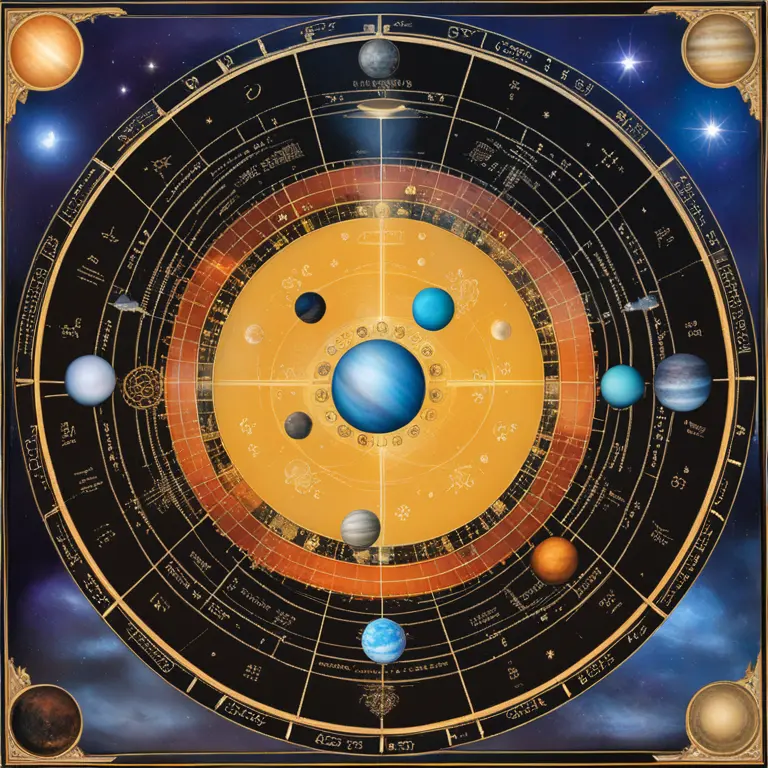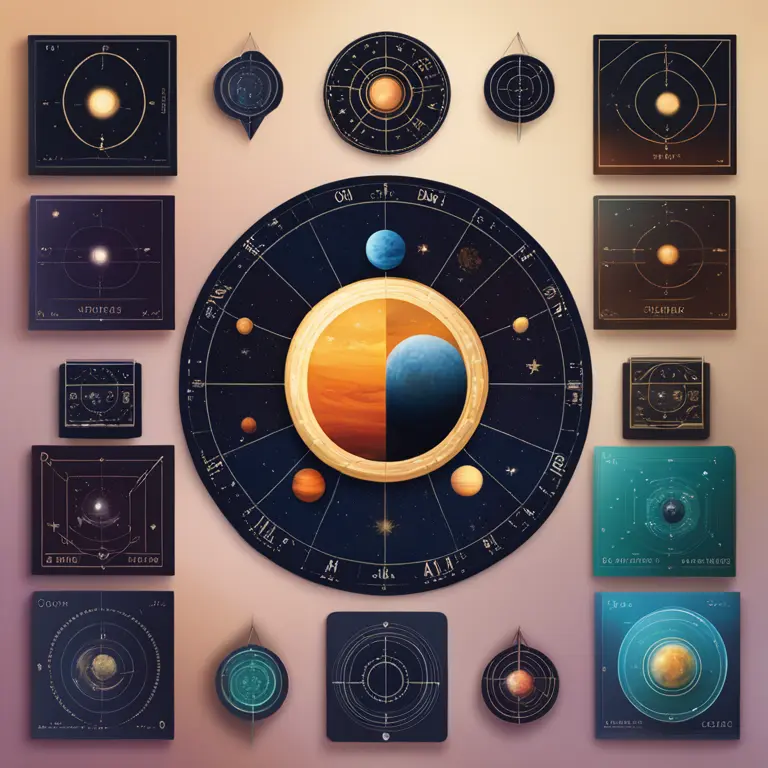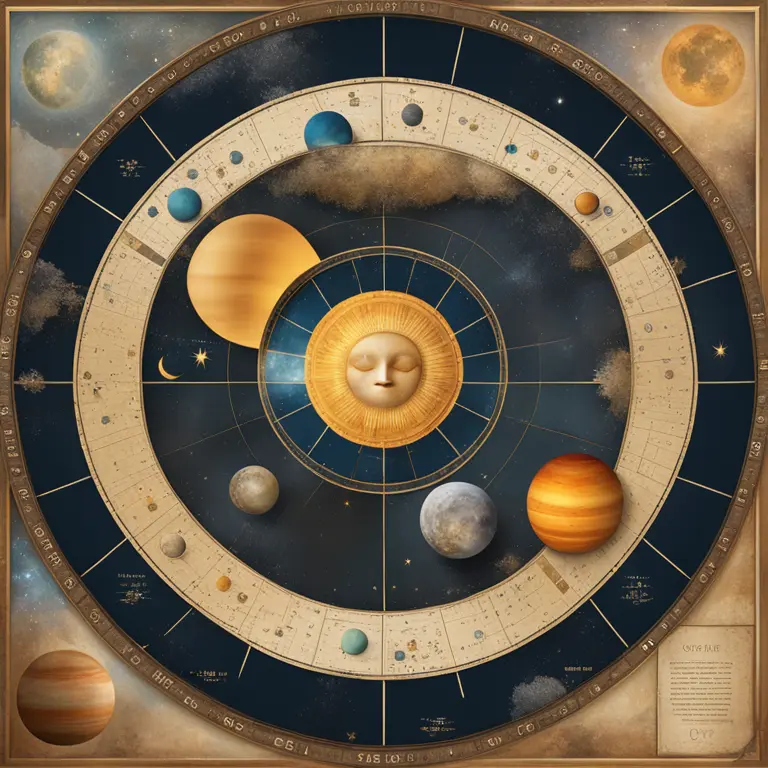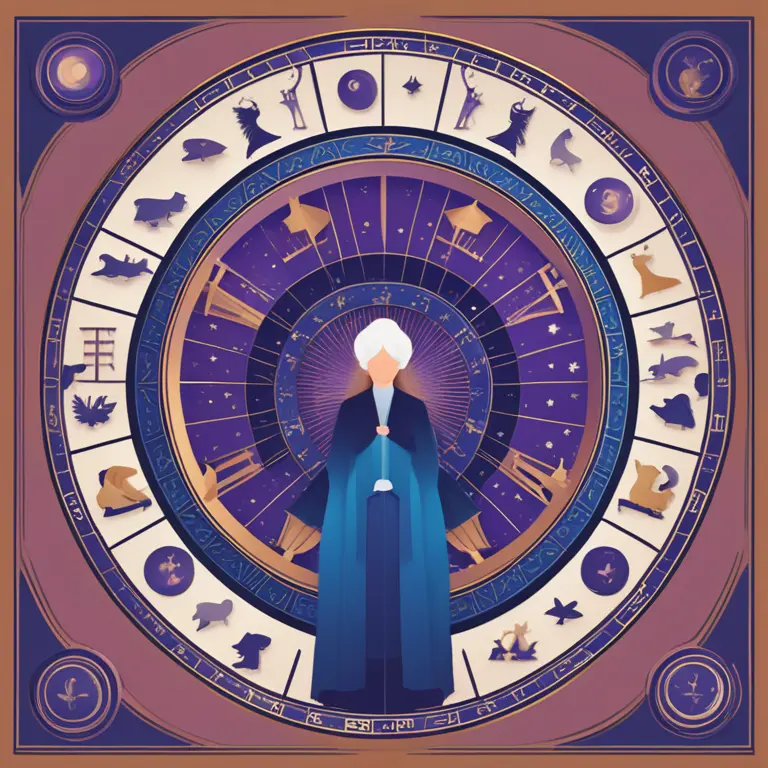
Birth Chart Analysis Discovered
Delve into the celestial blueprint of your personality with insightful techniques of birth chart analysis.
article by Priya Deshmukh
Your Personal Celestial Map
A birth chart, also known as a natal chart, serves as a celestial snapshot of the skies at the moment of your birth. Interpreting this personal astral diagram entails a deep dive into the positions of the planets, the sun, and the moon, as well as the 12 astrological houses. It's a complex mosaic that astrologers believe can shed light on various aspects of your personality, life events, and even your potential future. The chart is uniquely yours, reflecting a cosmic alignment that will not repeat for thousands of years.

Planets and Points
Central to birth chart interpretation are the planets and luminaries, each embodying different facets of your being. The Sun sign illustrates one's core identity, while the Moon sign governs emotions and inner moods. Mercury's position indicates communication style; Venus, the approach to love and beauty; and Mars, one's action and drive. Outer planets like Jupiter and Saturn speak to growth and structure respectively, while modern astrology includes Uranus, Neptune, and Pluto to represent higher collective energies and transformations in personal charts.

The Zodiac Signs and Houses
Zodiac signs give flavor to the planets' expressions, shaping how the planetary energies manifest. Each sign boasts distinct qualities, from Aries' pioneering spirit to Pisces' empathetic nature. The astrological houses, numbering twelve, correspond to different life areas, such as the first house of self, fourth of home and family, seventh of partnerships, and tenth of career achievements. Understanding the interaction of planets, signs, and houses within your chart can highlight strengths, challenges, and growth areas.

Angles and Aspects
Astrology also considers the angles or aspects that planets form with each other, denoting the harmonies and tensions in a chart. Conjunctions (planets in the same sign), trines (120 degrees apart), and sextiles (60 degrees apart) generally suggest ease and flow. Contrastingly, squares (90 degrees) and oppositions (180 degrees) indicate challenges and areas for potential growth. These relationships can greatly influence how planetary energies play out in your life.

Transits and Progressions
While your birth chart remains a static blueprint, the ongoing movement of planets, known as transits, can activate different chart areas, coinciding with events and periods in your life. Astrologers also study secondary progressions, a symbolic representation of your growth, to forecast personal development. These predictive techniques can offer guidance on timing, helping you make decisions when the celestial tides are in your favor.
The Personal Touch in Analysis
In the digital age of 2024 and beyond, while software can generate birth charts with precision, the interpretation still requires a personal touch. Each chart is a complex, nuanced reflection of an individual, and generic descriptions can never fully capture your unique story. This is where the skill of an experienced astrologer comes in, one who can synthesize the planetary symphony into a coherent narrative that resonates with your personal journey.
Published: 1/22/2024
Modified: 1/23/2024
More predictions
Come back here soon to learn more about yourself and your future


The Essence of Your Birth Chart
Delve into the cosmic blueprint of your personality through the lens of your unique birth chart, guiding your journey through life's astrological influences.


Birth Chart: The Essence of Your Cosmic Blueprint
Delve into the cosmic blueprint of your personality through the intricate details of your birth chart in modern astrology.